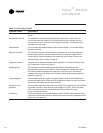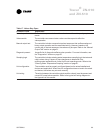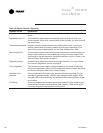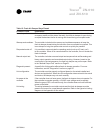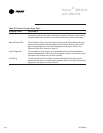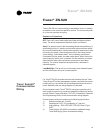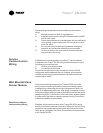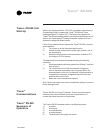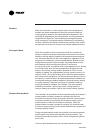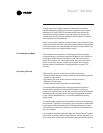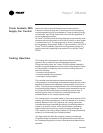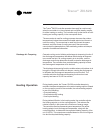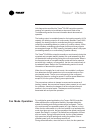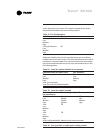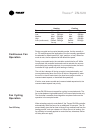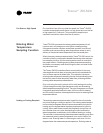
Tracer
®
ZN.520
62 UNT-IOM-6
When the controller is in the occupied mode, the unit attempts to
maintain the space temperature at the active occupied heating or
cooling setpoint, based on the measured space temperature, the
discharge air temperature, the active setpoint, and the proportional/
integral control algorithm. The modulating control algorithm used
when occupied or in occupied standby is described in the following
sections. Additional information related to the handling of the control-
ler setpoints can be found in the previous Setpoint operation section.
When the controller is in the unoccupied mode, the controller at-
tempts to maintain the space temperature at the stored unoccupied
heating or cooling setpoint, based on the measured space tempera-
ture, the active setpoint and the control algorithm, regardless of the
presence of a hardwired or communicated setpoint. Similar to other
configuration properties of the controller, the locally stored unoccu-
pied setpoints can be modified using Rover service tool.
In unoccupied mode, a simplified zone control algorithm is run. During
the cooling mode, when the space temperature is above the cool
setpoint, the primary cooling capacity operates at 100%. If more
capacity is needed, the supplementary cooling capacity turns on (or
opens to 100%). During the heating mode, when the space tempera-
ture is below the heat setpoint, the primary heating capacity turns on.
All capacity is turned off when the space temperature is between the
unoccupied cooling and heating setpoints. Note that primary heating
or cooling capacity is defined by unit type and whether heating or
cooling is enabled or disabled. For example, if the economizer is
enabled and possible, it will be the primary cooling capacity. If
hydronic heating is possible, it will be the primary heating capacity.
The controller can be placed into the occupied standby mode when a
communicated occupancy request is combined with the local
(hardwired) occupancy binary input signal. When the communicated
occupancy request is unoccupied, the occupancy binary input (if
present) does not affect the controllers occupancy. When the
communicated occupancy request is occupied, the controller uses
the local occupancy binary input to switch between the occupied and
occupied standby modes.
During occupied standby mode, the controllers economizer damper
position goes to the economizer standby minimum position. The
economizer standby minimum position can be changed using Rover
service tool.
In the occupied standby mode, the controller uses the occupied
Occupied
Unoccupied Mode
Occupied Standby Mode



